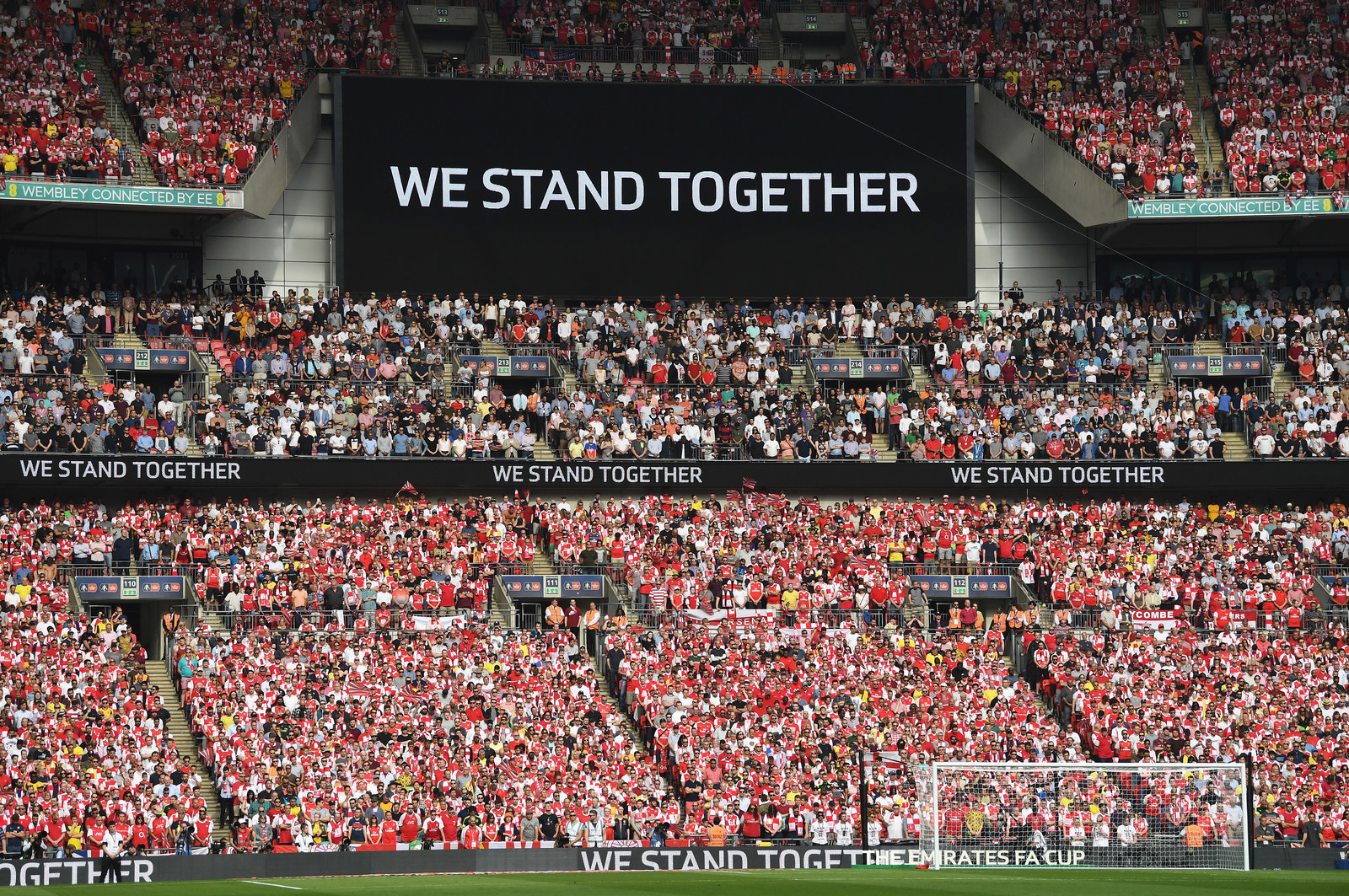In the aftermath of the bombing at Manchester Arena last week — which killed 22 people and wounded 116 others — venue operators, live event producers, and law enforcement groups around the world are rethinking their approaches to event security.
The below article written by Buzz Feeds, Reggie Ugwu are some great tips on staying safe at major events.

Leon Neal / Getty Images
ISIS claimed responsibility for the bombing, which targeted an Ariana Grande concert in the northern England city of Manchester on May 22. UK Prime Minister Theresa May described it as "among the worst terrorist incidents we have ever experienced." Today, Grande announced that she will return to the city on Sunday, June 4, for a benefit show, which will also feature performances by Justin Bieber, Katy Perry, Coldplay, Pharrell, Miley Cyrus, and others.
The big challenge: The Manchester bombing took place in a "gray zone" between the arena and a train station, which had a lot of foot traffic but less security than at either location.

Dave Thompson / Getty Images
Since 9/11, security procedures at big venues like Manchester Arena have been routinely upgraded. Safety measures including bollards (those stout metal poles that block vehicles), metal detectors, high-resolution security cameras, and numerous security guards and off-duty police officers are now standard.
But incidents like the Manchester bombing — and a bombing outside of a soccer stadium during the 2015 Paris attacks — indicate a need to expand the security perimeter around big events, security experts said. "It’s no longer just the venue anymore — it’s the surroundings that are just as important," Louis Marciani, director of the National Center for Spectator Sports Safety and Security, told BuzzFeed News.
In the future, security experts say they expect these kinds of peripheral areas to be more heavily guarded — a change that will require increased cooperation between private businesses and local authorities, and make the experience of attending live events a little more demanding.

Oli Scarff / AFP / Getty Images
In addition to making the access to events more tedious, added security could lead to higher ticket prices to cover costs.
"Just like when we stopped allowing liquids on planes, and started requiring you to take your shoes off at the airport, it’s a nuisance, but it’s a necessary nuisance," said Manuel Gomez of MG Security Services. "As these things evolve, we evolve with them."
Whatever form new security measures take, experts said they are likely to be implemented quietly. "A promoter or venue will never say, 'Because of Bataclan we're doing X,' or 'Because of Manchester we're doing Y,' because they don't want to worry people," said Steve Adelman, vice president of the Entertainment Safety Alliance.
Multiple promoters contacted by BuzzFeed News declined to comment.
If you're at an arena or other venue and something alarming happens, experts say there are things you can do to help keep yourself and your friends safe.

Mike Hewitt / Getty Images
Here are some precautions for the safety-conscious ticket holder, according to security professionals:
Before the Event / When You Arrive:
1. Review the seating chart and familiarize yourself with the layout of the venue and the location of your seat. You may want to download the chart to your phone.
2. Do a search online to see if the event or performers have been a target of violent threats.
3. Check the venue's website to see if there's information posted about its security efforts.
4. Parents: Consider requiring adult supervision for kids and teenagers.
5. With the rest of your party, think ahead about what your game plan will be in the event of an emergency: What will you do? How will you communicate? Where will you go?
6. When you get to the venue, keep an eye out for the emergency exit closest to your seat — just like on an airplane.
7. Take note of where event staff or security/police officers are posted.
8. Keep an eye out for a potential "safe room" near your seat — a closet or other windowless room with a door that locks — where you can hide if necessary.
9. If you see someone acting strangely or in a way that makes you uncomfortable, notify event staff or security/police officers.
If There's an Emergency:
10. Take cover and listen for any announcements.
11. See if you can identify the location of the threat(s) based on crowd reactions and get out of the way of immediate harm.
12. Put your game plan into action. If you need to escape the venue, calmly and quickly make your way toward the nearest exit — not the entrance you came in.
13. If there's an armed attack and you can't escape quickly, head to a safe room, lock the door, turn out the lights, and stay silent. "If [the attacker] has to make extra effort to get into a room, they might just bypass it," said Jeff Ringel, a security analyst with The Soufan Group and a former leader of the FBI's emergency response team.
14. Keep your group together and help each other out.
15. If you get caught up in a stampede, move away from the center and grab onto a wall or pillar for safety.
16. Stay away from glass that could shatter and cause injuries.
17. But if other exits are blocked, be prepared to break a window or escape by alternative means.
